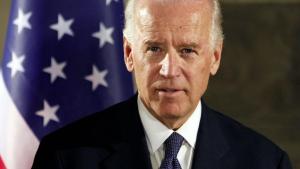Granite State lawmakers are looking at a voter-approved constitutional amendment to legalize marijuana, Washington activists are laying the groundwork for a 2022 drug decriminalization initiative, and more.

New Hampshire Lawmakers Move Toward Marijuana Legalization Constitutional Amendment. Stymied at the state house, three state representatives have separately filed requests with the Office of Legislative Services for help drafting a bill that would let the voters decide directly whether or not to legalize marijuana. The bill would take the form of a constitutional amendment, but for it to pass, it would require a supermajority of 60 percent in both the House and Senate. It would also require the support of 67 percent of voters once it made the ballot. Meanwhile, lawmakers will take up a legalization bill early next year. A legalization bill managed to pass the House last year but died in Senate committee.
Drug Policy
Washington State Drug Reformers Announce Plan to Put Drug Decriminalization Initiative on 2022 Ballot. A group of drug reformers organized as Commit to Change WA has announced plans to try to qualify a drug decriminalization initiative for the 2022 ballot. The group has yet to release a draft of the proposed initiative but said they will file it in January. Still, the group identified three broad principles for the measure: Ending treating drug use as a crime, a robust commitment to incorporating the experiences of actual drug users, and an emphasis on public health approaches. Neighboring Oregon decriminalized drug possession at the ballot box last year, becoming the first state to do so.
Foreign Policy
White House Releases Annual List of Major Drug Producing and Transit Countries. President Biden on Wednesday released the annual list of drug producing and transit countries, as required by the 2003 Foreign Relations Act. "I hereby identify the following countries as major drug transit or major illicit drug producing countries: Afghanistan, The Bahamas, Belize, Bolivia, Burma, Colombia, Costa Rica, the Dominican Republic, Ecuador, El Salvador, Guatemala, Haiti, Honduras, India, Jamaica, Laos, Mexico, Nicaragua, Pakistan, Panama, Peru, and Venezuela," Biden wrote. Of the 22 countries, the president designated only two -- Bolivia and Venezuela -- as "having failed demonstrably to make substantial efforts during the previous 12 months to both adhere to their obligations under international counternarcotics agreements and to take the measures required by section 489(a)(1) of the FAA." It may be worth noting that the only two countries to be so designated have socialist governments. Biden did, however, waive the requirement that aid to the two countries be cut off, writing that "the United States programs that support Bolivia and Venezuela are vital to the national interests of the United States."
This work by StoptheDrugWar.org is licensed under Creative Commons Attribution-ShareAlike 4.0 International
Add new comment